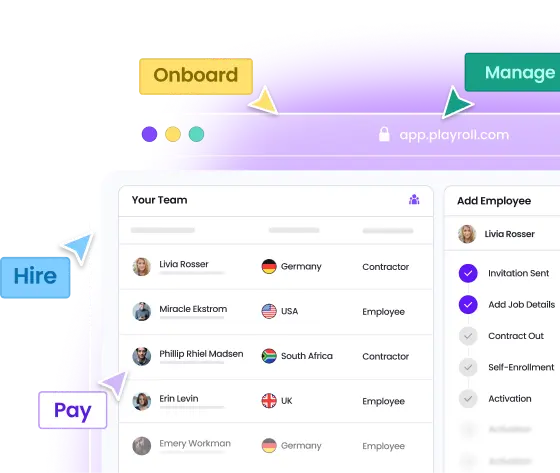What Are the Standard Working Hours in Australia?
Employees who are 17 or younger has a maximum of 8 hours per day and 38 working hours per week. An employee who is 18 or older is allowed to work 38 hours per week, plus reasonable additional hours. If someone works more than 5 hours in a day, you'll need to give them at least a 30-minute meal break. In typical working hours, Monday through Friday, the hours are 9:00 AM - 5:00 PM, though this can vary depending on the industry and employment agreement.
Maximum Working Hours in Australia
The statutory maximum is 38 hours per week for full-time employees, as per the Fair Work Act 2009. Employees may work "reasonable additional hours" beyond this limit depending on their role, industry, and agreements in place. Overtime may be required under a Modern Award, enterprise agreement, or employment contract and typically includes penalty rates for hours worked beyond the standard weekly or daily cap.
Industry Specific Exceptions
Industries such as healthcare, emergency services, mining, and transportation often operate under specific Modern Awards or enterprise agreements. These allow for flexible rosters, shift rotations, or extended hours, including longer shifts followed by extended rest periods to accommodate operational demands.
Managerial and Exempt Employees
Managerial and exempt employees generally hold positions with high-level decision-making or supervisory responsibilities. While they may not be eligible for standard overtime pay, they are still subject to reasonable working time expectations under the Fair Work Act and bound by their employment contracts.
Statutory Full-Time Working Hours in Australia
Full-time employment is defined legally as 38 hours per week. This standard applies across all industries unless varied by a Modern Award or enterprise agreement, which may allow the averaging of hours over a longer period.
Overtime Regulations in Australia
Employees are entitled to compensation for working beyond ordinary hours, subject to the terms of their applicable Modern Award, enterprise agreement, or employment contract.
What Counts As Overtime in Australia?
Any hours worked beyond 38 per week—or beyond the ordinary hours defined in a relevant award or agreement—are considered overtime.
Maximum Overtime in Australia
There is no fixed national cap on overtime hours, but all overtime must be "reasonable." Reasonableness is assessed based on factors such as health, safety, employee personal circumstances, and the amount of notice given. Employees may lawfully refuse to work unreasonable overtime. Employers found in violation of these provisions may face penalties of up to AUD 495,000 per offense for large corporations.
Overtime Payout Rates in Australia
Overtime is typically compensated at 150% of the regular hourly wage (time-and-a-half) for the first few hours, increasing to 200% (double time) thereafter. Weekend work is commonly paid at 150% to 200%, and public holiday work is usually paid at double time or higher, depending on the award or agreement.
Rest Periods and Breaks in Australia
Employees working more than five hours a day must be given a 30-minute unpaid break. Between shifts, there should be a minimum rest period of at least 10 hours, subject to the applicable award or agreement. In sectors like healthcare and transportation, longer or more frequent breaks may apply. Employers are responsible for ensuring compliance with these provisions and maintaining proper timekeeping and safety standards.
Night Shifts and Weekend Regulations
Night shifts are typically defined as work occurring between 10:00 PM and 6:00 AM. Weekend work is frequent in essential service sectors and is regulated by the relevant awards or agreements. Employees working during these times often receive penalty rates, which may be 25–50% above standard base pay depending on the industry and role.
Disclaimer
THIS CONTENT IS FOR INFORMATIONAL PURPOSES ONLY AND DOES NOT CONSTITUTE LEGAL OR TAX ADVICE. You should always consult with and rely on your own legal and/or tax advisor(s). Playroll does not provide legal or tax advice. The information is general and not tailored to a specific company or workforce and does not reflect Playroll’s product delivery in any given jurisdiction. Playroll makes no representations or warranties concerning the accuracy, completeness, or timeliness of this information and shall have no liability arising out of or in connection with it, including any loss caused by use of, or reliance on, the information.
.svg)
.svg)
.svg)





.svg)



.png)











.webp)









.svg)